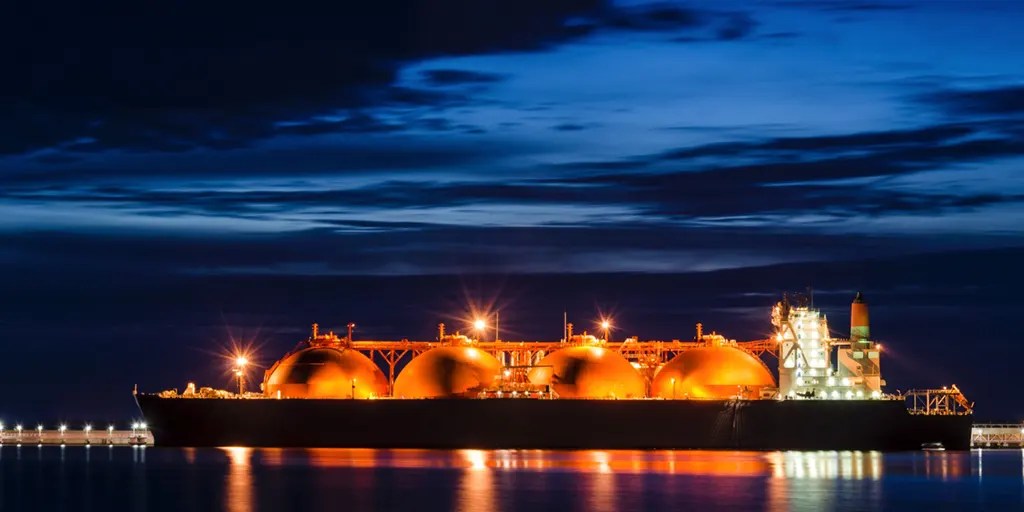By Patrick Hynes
April 08, 2024
In the aftermath of the 1979 Three Mile Island nuclear accident, then-Senator Joe Biden voted for a “temporary pause” on reactor permitting, despite no credible evidence of public harm from radiation. Although the measure failed, the nuclear industry never recovered from this political overreaction based on exaggerated fears. Forty-five years later, President Biden has unilaterally ordered a “temporary pause” on the permitting of liquified natural gas (LNG) export terminals – a move the Washington Post editorial board aptly labeled “a win for political symbolism, not the climate.”
So, why are Biden’s usual allies, including some Congressional Democrats, taking the gas industry’s side? Mainly, because the decision harms the U.S. geopolitical and economic security – and climate efforts. With anti-nuclearism in our rearview, the president should know better than to listen to degrowth-oriented environmentalists who cheered the pause.
Long before LNG met resistance from mainstream green groups, nuclear energy was their primary target. They amplified fears about radiation and leveraged celebrity influence to communicate these supposed risks to young people. For example, Jane Fonda’s movie The China Syndrome, which depicts a reactor meltdown burning through the earth’s core, was released just days before Three Mile Island, fueling public confusion. Despite no evidence of public radiation harm, the reputational damage slowed the industry’s growth. Over the next few decades, coal replaced reactors that would have been built, and emissions accelerated until peaking in the mid-2000s when plentiful natural gas led to significant decarbonization.
Biden’s LNG export terminal pause resulted from a similar campaign including many of the same organizations recycling the same tactics. Fonda was even involved, this time utilizing TikTok to reach Gen Z audiences. Because they have significant White House access and political capital in an election year, Biden took their bait and went to war with fossil fuels to appease young, progressive voters.
Part of the reason for the widespread skepticism of the pause is that it relies on highly dubious findings in one non-peer-reviewed study by a highly controversial professor with a history of publishing discredited reports on methane. It suggests that other analyses, including the Department of Energy’s, underreport methane leakage by such a large margin that LNG is actually worse than coal for the climate. It’s oddly similar to arguments that anti-nuclear activists made in the 1970s, like when a Sierra Club executive claimed: “Unlike nuclear, which risks long-term genetic damage, coal’s impacts won’t be felt generations from now.” In both cases, coal was the preferred resource for these activists.
In reality, the U.S. oil and gas sector already has the world’s lowest methane leakage rates and is leading efforts to track, capture, and monetize fugitive methane innovatively. Leakage declined by 28% between 2019 and 2021 alone. As Freeport LNG’s Chairman Michael Smith emphasized at CERA Week, “Every single one of us makes our money selling methane. We don’t want to release it.”
Conversely, Russia, the world’s second largest producer of natural gas, has little concern over methane leaks. The Department of Energy study Howarth claims to debunk found Russia’s methane emissions rate 4-5 times higher than U.S. LNG’s 1% level, though still cleaner than coal. The Kremlin’s lax standards also played a major role in the 1986 Chernobyl nuclear accident. At Three Mile Island, higher standards and risk aversion protocols inherent in a capitalist system prevented the accident from turning into a catastrophe – though hysteria still caused investment flight to coal.
If idealistic politicians succeed in removing U.S. LNG from the global market, it will lead to the double whammy of increased coal and dirtier natural gas from emissions-agnostic countries like Russia. Like nuclear, the LNG export sector is highly vulnerable to political disruptions. A rejected export terminal, much like a failed reactor, can erode investor confidence enough to reverse the industry’s momentum. A German state-owned gas importer, SEFE, has already turned to Russia in response to the pause, and other committed buyers like Malaysia are reportedly getting cold feet. These developments are neither good for global security nor the climate.
While it may seem far-fetched that this pause could pose an existential threat to U.S. LNG exports, one need only look back to 1979 when few could have foreseen that only two new nuclear reactors would be built in the subsequent 45 years. Now that we realize how regressive that was in the fight against climate change, the president has no excuse to repeat the same mistakes.
Patrick Hynes is a fellow with ConservAmerica.
This article was originally published by RealClearEnergy and made available via RealClearWire.
Related


